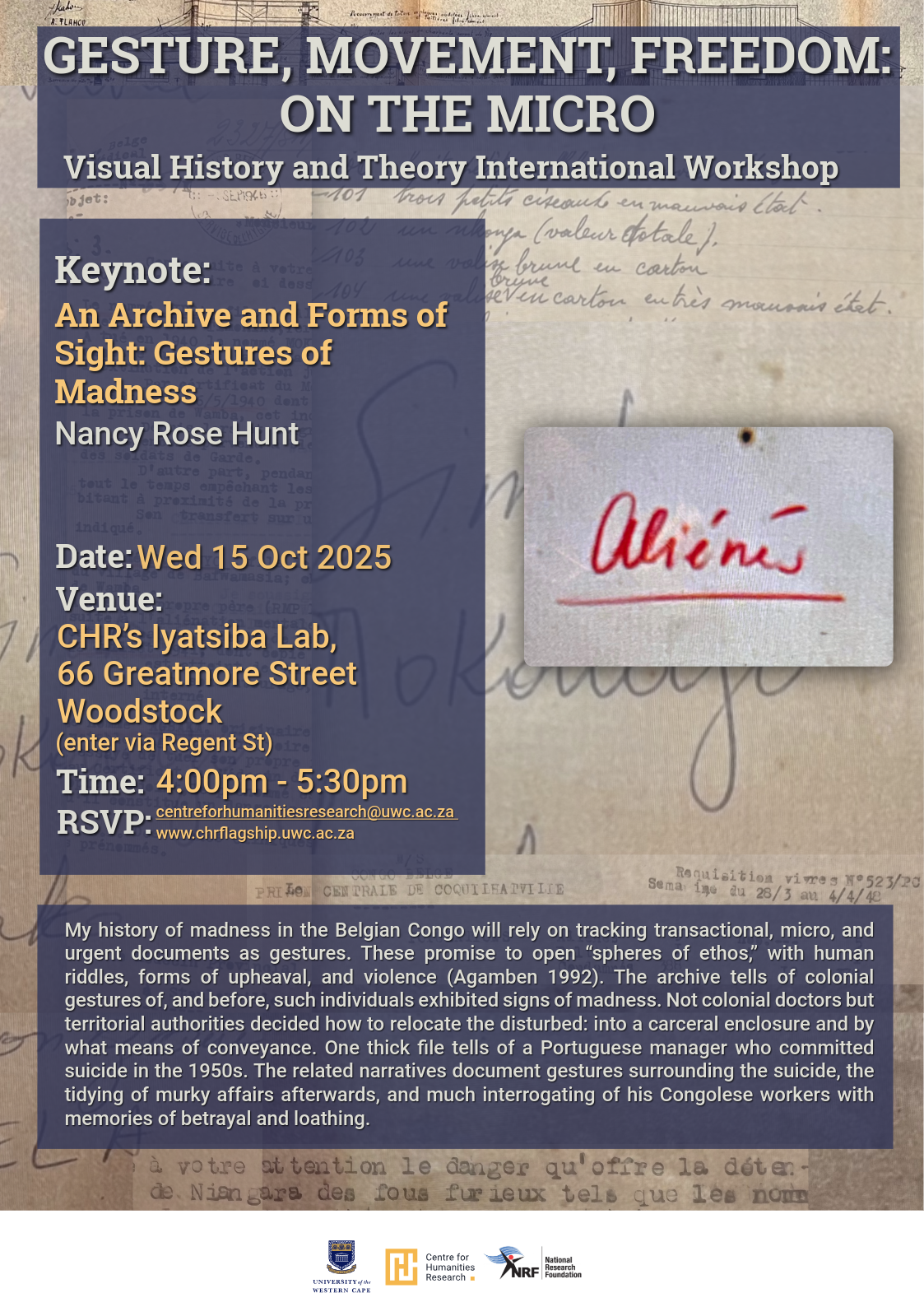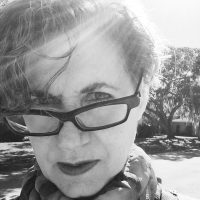
My history of madness in the Belgian Congo will rely on tracking transactional, micro, and urgent documents as gestures. These promise to open “spheres of ethos,” with human riddles, forms of upheaval, and violence (Agamben 1992).
The archive tells of colonial gestures of, and before, such individuals exhibited signs of madness. Not colonial doctors but territorial authorities decided how to relocate the disturbed: into a carceral enclosure and by what means of conveyance. One thick file tells of a Portuguese manager who committed suicide in the 1950s. The related narratives document gestures surrounding the suicide, the tidying of murky affairs afterwards, and much interrogating of his Congolese workers with memories of betrayal and loathing.
The complete assemblage of colonial episodes may yield a sociology of madness in relation to economic zones. Like “a constellation,” the “phenomena . . . composed in a gesture” (Agamben 1992), may align with a “riddle of critique” or a “gesture of upheaval” (Didi-Huberman 2017). Present were middle figures, the kind noted by Balandier as acutely important to postwar central Africa’s brittleness, thus not whites, not blacks, not évolués, but not-quite-white figures from Greece, Portugal, Italy, or Angola all via Mediterranean zones.
In avoiding a “fixed repertoire of images,” rather in seeking representations that move and stir, “reification and effacement” may be evaded beside a “freeing of the image” (Agamben 1992), itself a gesture. The archive seems not immediately visual, though some documents knew gestures: coloration, marks for emphasis, and boastful letterheads. The analytical work entails identifying counterpoints, and comparing that excessive, fat suicide file with thin, microscopic, ordinary cases telling of a single person, event, and yet more gestures. One register will focus on compositional gestures, per page or archival series, or look for regularities, aberrations, and eccentricities in the writing and the acting. A second register will concern the gestures of a person perceived as mad, thus as abnormal, strange, or eccentric, and requiring gestures of mastery before their misdeeds, and also as one brought to a state agent’s attention.
My analysis will weave between a gestural visuality of paperwork and live frictions, also between one human being subdued, and another presuming to be in control, as well as diverse human sensibilities suggesting a fraught ethos. If a challenge of this colonial archive lies in its thinness – often a mere scrap of paper, per case –repetitions and rhythms of form will pry open matters of the cinematic, the fictive, life on the move. The word gesture, in sum, will anchor the microscopic in relation to a large archive and its forms of sight.

Nancy Rose Hunt
A specialist of history and anthropology in Africa, Nancy Rose Hunt focuses on matters medical, therapeutic, and gender, while paying attention to material objects, everyday technologies, visual culture, and violence. She has published articles and essays on reproductive politics, breastfeeding, nursing, letter-writing, bicycles, comics, and power in colonial situations; as well as on abortion in African novels; colonial technologies and postcolonial debris; and the acoustics of war and humanitarianism. Her first book, an ethnographic history set in the Belgian Congo and then Zaire, A Colonial Lexicon: Of Birth Work, Medicalization, and Mobility (Duke,1999), received the Herskovits Book Prize in 2000. A Nervous State: Violence, Remedies, and Reverie in Colonial Congo (Duke, forthcoming) analyses two intertwined domains–the securitization of therapeutic insurgency, and the medicalization of infertility–in a part of the Belgian Congo (1908-60), which became iconic as a zone of rubber extraction, war, and horrrific violence in the period when Congo was King Leopold’s Free State (1885-1908). She is also working on a condensed world history of health and medicine for Oxford University Press.
Since 1985, she had done field research and taught in the Democratic Republic of Congo, Ghana, and Burundi, under Social Science Research Council and Fulbright fellowships. A Fellow at the Netherlands Institute for Advanced Study in 2001-02 and at the Wissenschaftskolleg in Berlin in 2010-11, she was named a CICS Human Rights Faculty Fellow at Michigan for 2012-2013.
